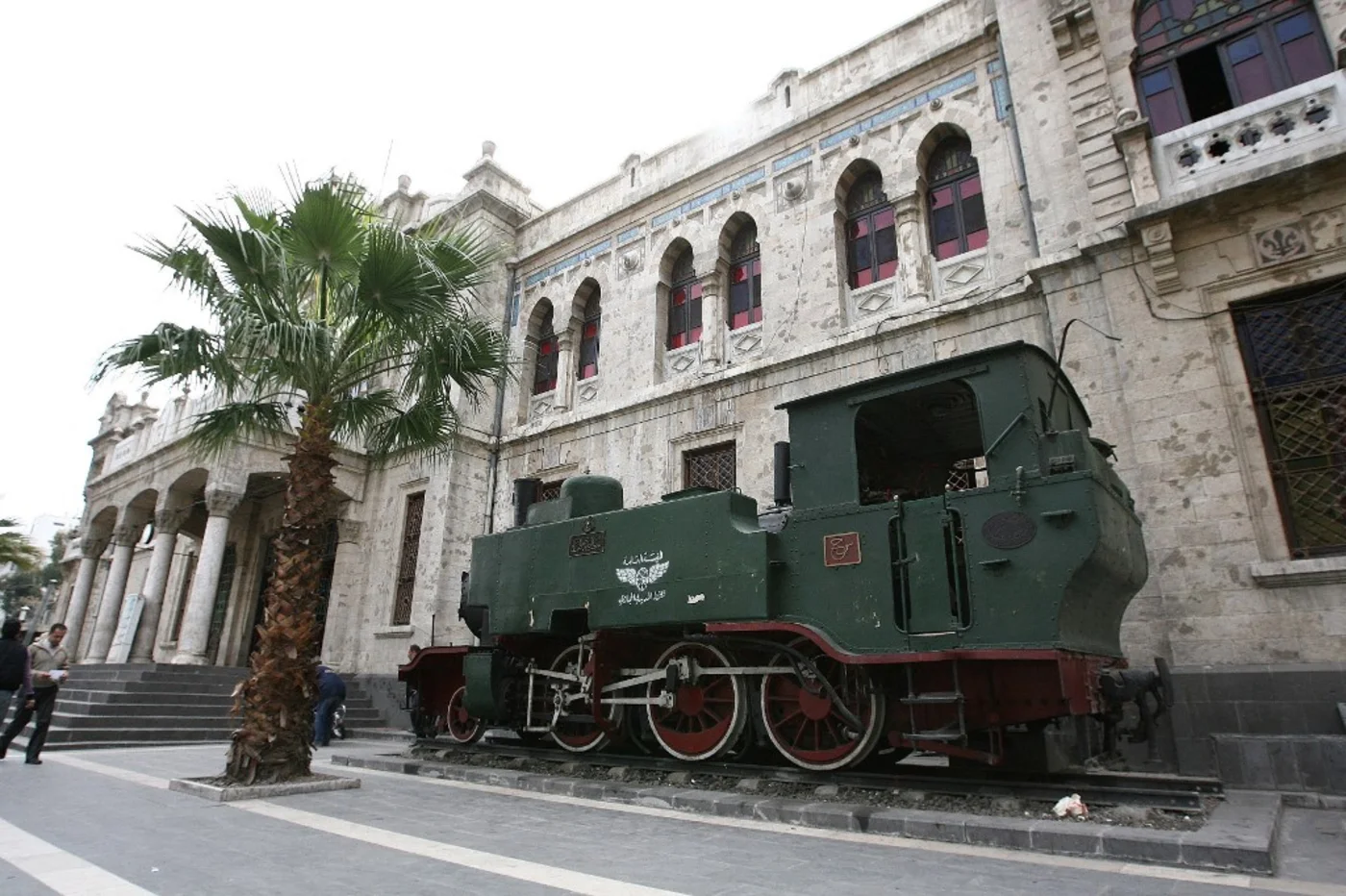
Turkey will restore parts of the historic Hejaz Railway in Syria, reconnecting Turkish rail lines to Damascus, Turkish Transportation Minister Abdulkadir Uraloglu said on Tuesday during a meeting with journalists.
The comments by the Turkish official come as Ankara works on helping rebuild its southern neighbour after 13 years of civil war.
“We will quickly assess the situation and take steps to restore the railway connection to Damascus as a first stage,” Uraloglu said during a meeting with the Anatolian Broadcasters Association in Ankara, according to a transcript.
“There are sections of the railway stretching from Turkey to the Hejaz region. We know that these lines have not been operational for a long time as part of a larger network,” Uraloglu added.
“From 2009 to 2010, we sent passenger trains there and even took a journey ourselves.
“There’s existing infrastructure in place… However, in some areas, such as Iraq, we’ve seen railway tracks stolen and sold as raw iron. We may face similar issues in Syria.”
Turkish President Recep Tayyip Erdogan said during a cabinet meeting on Monday that every minister with a specific portfolio will study the shortcomings and problems in Syrian infrastructure and offer help to the new Syrian administration.
A caretaker government has been established in Damascus to maintain state services following the ouster of Syrian President Bashar al-Assad, who fled the country earlier this month in the face of a rebel offensive.
‘Ambitious dream’
The legendary Hejaz Railway was the ambitious dream of Sultan Abdulhamid II of the Ottoman Empire, who, in 1900, envisioned a train line connecting Istanbul to Mecca.
Named after the Hejaz region in the western Arabian Peninsula, home to Islam’s two holiest cities – Mecca and Medina – the railway was constructed with remarkable speed, funded entirely by Muslim donations. While some donations were voluntary, others were coerced.
The line, which was already connected to Istanbul, extended from Damascus to Medina, with a branch line to Haifa in Palestine.
It was primarily intended to facilitate the Hajj pilgrimage to Mecca and to strengthen Ottoman control over its distant provinces. The railway also served as a military transport route for Ottoman forces.
However, the railway faced frequent sabotage, particularly during the British-backed Arab Revolt, led by the intelligence officer TE Lawrence, famously known as “Lawrence of Arabia”.
The project came to an abrupt halt with the outbreak of World War One.
The Hejaz Railway never reached its ultimate destination of Mecca, ending in Medina – approximately 400km short of the holy city.
A Legacy of Connectivity and Faith
The Hejaz Railway originated as Sultan Abdulhamid II’s ambitious vision to connect Istanbul to Mecca, facilitating Hajj pilgrimages. Completed in 1908, the line symbolized progress and religious devotion.
Muslim contributions, both voluntary and coerced, funded the railway’s construction. It extended from Damascus to Medina, serving pilgrims and strengthening Ottoman control in remote provinces.
Modern Restoration with Historic Roots
Rebuilding the historic Hejaz Railway represents more than just infrastructure repair. It revives a symbol of unity, religious significance, and economic connectivity.
Despite challenges, Turkish officials remain committed to restoring the railway and reopening vital trade routes. This project could reshape regional transportation and economic relations.
Turkey’s efforts highlight the importance of cooperation with Syria’s interim government to ensure the project’s success. Reconstructing damaged rail lines requires careful planning, resources, and political stability.
Looking Toward the Future
Turkey’s initiative to rebuild the historic Hejaz Railway blends historical preservation with modern development goals. It demonstrates Ankara’s broader strategy to stabilize Syria and promote long-term recovery.
Investing in rail infrastructure could create economic opportunities, enhance trade routes, and support regional growth. With determined efforts, Turkey hopes to restore the railway’s legacy and ensure its future relevance.
Post Disclaimer | Support Us
Support Us
The sailanmuslim.com web site entirely supported by individual donors and well wishers. If you regularly visit this site and wish to show your appreciation, or if you wish to see further development of sailanmuslim.com, please donate us
IMPORTANT : All content hosted on sailanmuslim.com is solely for non-commercial purposes and with the permission of original copyright holders. Any other use of the hosted content, such as for financial gain, requires express approval from the copyright owners.
 Sri lanka Muslims Web Portal Sri Lanka Muslims News Center
Sri lanka Muslims Web Portal Sri Lanka Muslims News Center



